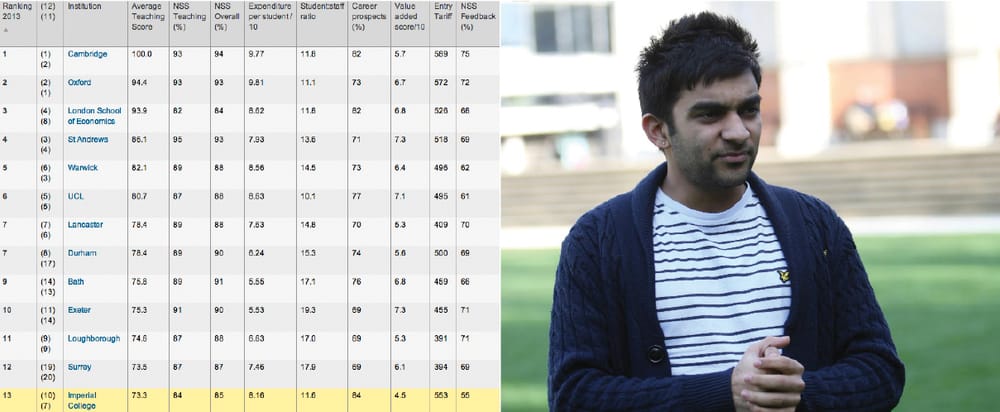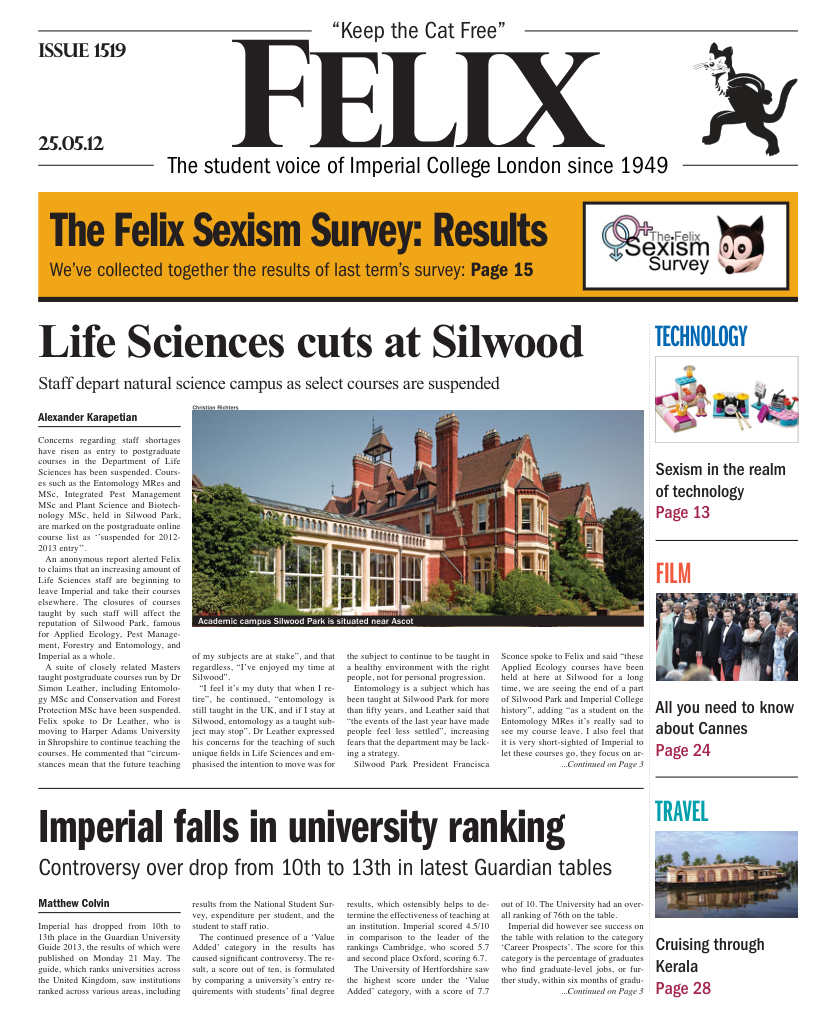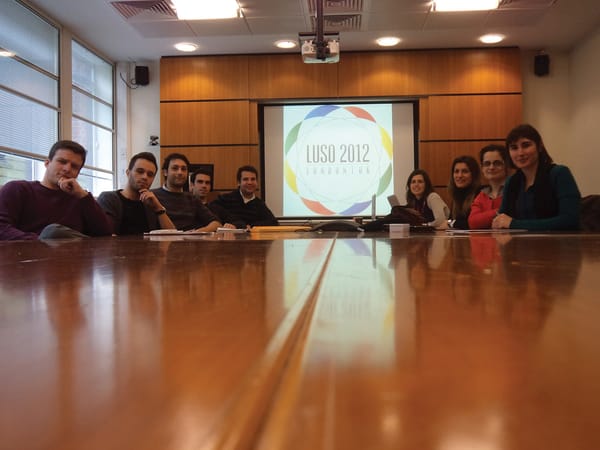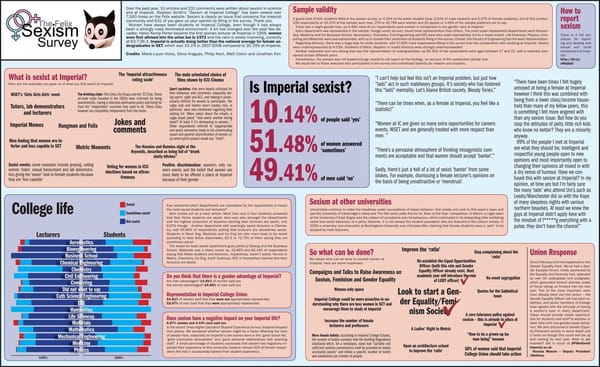Imperial falls in university ranking
Controversy over drop from 10th to 13th in latest Guardian tables

Imperial has dropped from 10th to 13th place in the Guardian University Guide 2013, the results of which were published on Monday 21 May. The guide, which ranks universities across the United Kingdom, saw institutions ranked across various areas, including results from the National Student Survey, expenditure per student, and the student to staff ratio.
The continued presence of a ‘Value Added’ category in the results has caused significant controversy. The result, a score out of ten, is formulated by comparing a university’s entry requirements with students’ final degree results, which ostensibly helps to determine the effectiveness of teaching at an institution. Imperial scored 4.5/10 in comparison to the leader of the rankings Cambridge, who scored 5.7 and second place Oxford, scoring 6.7.
The University of Hertfordshire saw the highest score under the ‘Value Added’ category, with a score of 7.7 out of 10. The University had an overall ranking of 76th on the table.
Imperial did however see success on the table with relation to the category ‘Career Prospects’. The score for this category is the percentage of graduates who find graduate-level jobs, or further study, within six months of graduation. Scoring 84% under the category, this placed the institution above the London School of Economics’ relative score of 82% at the top of the leaderboard for this category.
Imperial is placed third amongst the London-based universities, with the London School of Economics being placed in 3rd position overall, and University College London placed at 6th position.
Deputy President (Education) Jason Parmar was particularly outspoken on Imperial’s position in the rankings, and league tables in general:
“I believe that prioritising the student experience as a criteria for UK league tables is commendable of the Guardian, The Sunday Times and others. However, it is fair to say that the methodology of these tables have meant that they can be seen as doing a complete disservice to the prospective students who use them”
“We should be asking ourselves the question: should career prospects and research have greater weighting in modern league tables if we are to provide future students with a good service? In the current financial climate career prospects are crucial to a student’s choice of university, now more so than ever. The fact that the Guardian league table doesn’t even consider research worries me.
“In addition, their analysis and measure of the student experience, which contributes so heavily in the table, is unreliable as it is based solely on the National Student Survey. We even saw in Felix that the NSS could be hacked by students with very little effort. In addition to this the three student experience areas taken from the NSS are ‘Overall Satisfaction’, ‘Feedback’ and ‘Teaching’. But this doesn’t cover, for example, ‘Learning Resources’, which is a very important part of the student experience.”
Parmar was particularly vocal regarding the ‘Value Added’ category:
“Although in principle the ‘Value Added’ category aims to “show how effective teaching is”, it could easily do the exact opposite. To top the table in this criteria, which is worth 15% of the overall score, a university can simply increase the amount of firsts and upper seconds it awards, lower its entry requirements, and have terrible teaching effectiveness. This is counter productive as it lessens the academic integrity of graduates, and hence the table can easily misguide prospective students.”










